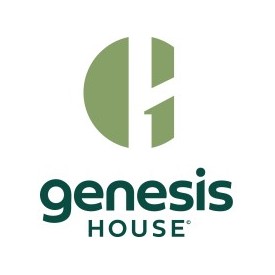Certain addictions can be severe and carry the potential to precipitate extremely serious or even life-threatening withdrawal symptoms. In such instances and to prevent such occurrences, recovering addicts are sometimes given other drugs. One such substance is Narcan.
Narcan Overview
Quite often, opioid drugs prove most challenging to detox. Ergo, a clinical approach to tapering persons with either severe or long-standing addictions to such products is to use similar but less powerful substances as a means of expediting the process as safely and effectively as possible or preventing serious, possibly deadly reactions to over dosages.
Narcan, which is scientifically referred to as Naloxone, is known as an opioid antagonist. This means the chemical is capable of quickly reversing the biological impacts of narcotic substances like heroin. Naloxone attaches to brain components called opioid receptors, which cause the mind and body to grow accustomed to the influences of said drugs. Opioid antagonists prevent these unfavorable reactions from taking place.
Clinical Uses
The medical community commonly employs Narcan to address emergency overdoses of opioid substances. Researchers have found that, in more than 81 percent of the occasions such treatment is administered, it is used to reverse heroin overdoses. The other 19 percent of documented application is performed to address over dosage of prescription narcotics like Oxycodone.
Method Of Administration
The United States-based government watchdog agency known as the Food and Drug Administration, commonly abbreviated the FDA, has approved three acceptable methods for Naloxone administration including:
Injection
The drug can be placed in vials from which administrators can transfer said substance into a syringe and insert it into a recipient’s vein. That said, those performing this method must have professional training.
Auto Injections
Recently, the scientific community developed a product called EVZIO. This is a portable contraption pre-filled with Narcan. An overdosing individual’s close relations or responding emergency services personnel can rapidly inject the drug into subject in need. The moment the device is activated, a pre-recorded voice provides instructions dictating the safe and expedient completion of this potentially life-saving procedure.
Nasal Spray
Narcan nasal spray comes in a pre-filled container and can be administered into a recipient’s nostril by squeezing said container to force the substance out of the bottle. Typically, only first responders and emergency room physicians apply Narcan injections. However, non-medical personnel like an opioid user’s family, friends, or other intimate associations could administer the drug using EVZIO or nasal spray preparations. That said, administration eligibility of non-medical officials varies from state to state. Moreover, certain jurisdictions require individuals obtain Narcan through a doctor’s prescription. In other locations, pharmacies are permitted to sell the drug without such documentation.
Systemic Impacts Produced By Narcan
Excessive opioid ingestion could result in certain notable and life-limiting events. First, said substances are known to adversely impact the respiratory system. Therefore, overdosing subjects often experience breathing difficulties and possibly even respiratory collapse. Furthermore, prodigious intake of narcotic substances could also precipitate central nervous system depression. Associated symptoms might, include confusion, diminished cognitive functions, excessive sleepiness, the inability to react to surroundings, and unconsciousness.
Occasions Narcan Should Be Used
The drug should only be given to individuals facing life-threatening overdoses or serious distress from recent opioid ingestion. Moreover, Narcan is only indicated to reverse the effects of narcotics and is neither effective nor in any way suggested to counter the influence of other drugs.
Typically, Narcan’s benefits are felt within minutes of application. That said, those experiencing active overdose should still receive further treatment and evaluation from trained medical professionals. Ergo, at the very least, such circumstances warrant an evaluation from emergency services personnel.
Possible Side Effects
When used and administered properly, Narcan is widely considered a safe therapeutic protocol. That said, the product possesses the capacity to elicit side effects. It is important to reiterate that the drug blocks narcotic influences. Therefore, said events could precipitate mild to moderate withdrawal manifestations including:
- Dizziness
- Nervousness
- Digestive disturbances
- Elevated body temperature
- Chills
Additionally, afflicted subjects might witness systemic bodily pains and a feeling of general malaise. Uncommonly, a Narcan recipient may encounter more alarming symptoms, such as seizures, hallucinations, and heartbeat irregularities.
Does Narcan Carry A Dependency Risk?
Addition specialists maintain that Narcan is not a controlled substance, which means it does not pose a serious risk for addiction. However, said substance should always be used responsibly and in accordance with appropriate medical protocols.
Reaching Out To Us
Individuals currently mired in an opioid dependency or who know of someone experiencing such hardships are encouraged to contact us. Recovery from narcotic addiction can be challenging. However, our south Florida establishment boasts a favorable record helping patients conquer such demons. Call us today at 855-936-4435.










